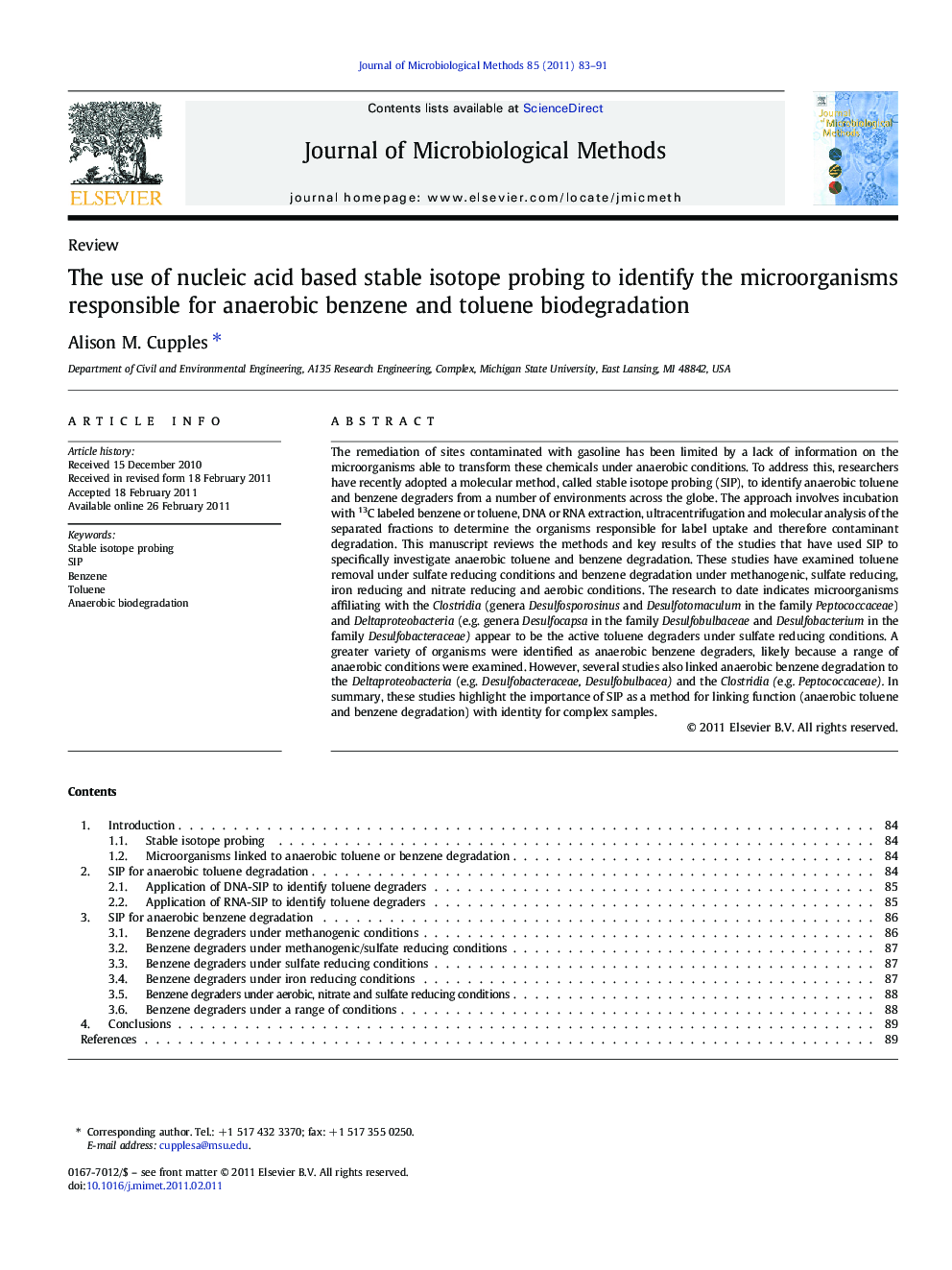| کد مقاله | کد نشریه | سال انتشار | مقاله انگلیسی | نسخه تمام متن |
|---|---|---|---|---|
| 2090458 | 1081504 | 2011 | 9 صفحه PDF | دانلود رایگان |

The remediation of sites contaminated with gasoline has been limited by a lack of information on the microorganisms able to transform these chemicals under anaerobic conditions. To address this, researchers have recently adopted a molecular method, called stable isotope probing (SIP), to identify anaerobic toluene and benzene degraders from a number of environments across the globe. The approach involves incubation with 13C labeled benzene or toluene, DNA or RNA extraction, ultracentrifugation and molecular analysis of the separated fractions to determine the organisms responsible for label uptake and therefore contaminant degradation. This manuscript reviews the methods and key results of the studies that have used SIP to specifically investigate anaerobic toluene and benzene degradation. These studies have examined toluene removal under sulfate reducing conditions and benzene degradation under methanogenic, sulfate reducing, iron reducing and nitrate reducing and aerobic conditions. The research to date indicates microorganisms affiliating with the Clostridia (genera Desulfosporosinus and Desulfotomaculum in the family Peptococcaceae) and Deltaproteobacteria (e.g. genera Desulfocapsa in the family Desulfobulbaceae and Desulfobacterium in the family Desulfobacteraceae) appear to be the active toluene degraders under sulfate reducing conditions. A greater variety of organisms were identified as anaerobic benzene degraders, likely because a range of anaerobic conditions were examined. However, several studies also linked anaerobic benzene degradation to the Deltaproteobacteria (e.g. Desulfobacteraceae, Desulfobulbacea) and the Clostridia (e.g. Peptococcaceae). In summary, these studies highlight the importance of SIP as a method for linking function (anaerobic toluene and benzene degradation) with identity for complex samples.
Journal: Journal of Microbiological Methods - Volume 85, Issue 2, May 2011, Pages 83–91